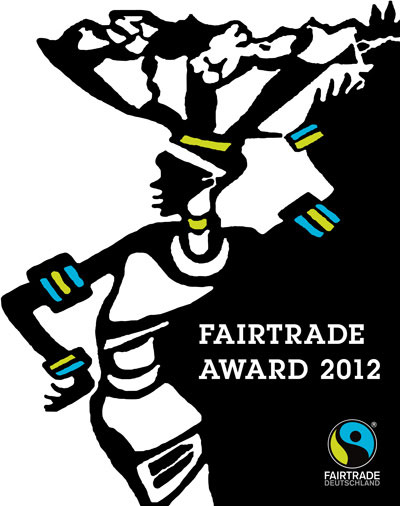The Fairtrade label identifies products obtained by fair trade which were produced according to specific social, environmental and economic criteria. All farmers who export Fairtrade products are certified by Fairtrade. Regular audits are performed to ensure that the appropriate Fairtrade standards are complied with.
Fairtrade gives consumers the certainty that small farmers, cooperatives and plantations are paid a stable, fair price for their produce, one that covers the costs of sustainable production. What’s more, a Fairtrade premium is paid on all products. The farmers form cooperatives and decide for themselves how to use this premium, e.g. to build drinking water fountains, to build or repair roads and schools, for healthcare or for further training.
By buying bananas with the Fairtrade seal, consumers are thus helping to improve the living and working conditions of small farmers all over the world.
More than 25 years have passed since Port International blazed a new trail in the fruit and vegetable industry by importing the first Fairtrade bananas to Europe. You can read the whole Fairtrade story here.
It all began in 1996 with a visit from Bert Beekman, the founding director of the Dutch Max Havelaar Foundation, who was looking for cargo space to transport a few pallets of “fairly traded” bananas to Europe by sea. Mike Port was curious and grew enthusiastic about the Fairtrade idea. The system’s ideals and standards fit well with the family-run group’s understanding of long-term, partnership-based trading relations with suppliers. However, transportation alone was not enough for him. “If we’re going to do it, we might as well do it right,” he thought, and decided to start selling Fairtrade bananas himself. The brand “Fairnando” was born without further ado, and in 1997, Port became one of the pioneers importing bananas with the Fairtrade seal to Europe.
Since Fairtrade coffee, tea and chocolate had only been appearing on German supermarket shelves for a few years, there was still relatively little consumer interest. Moreover, there were only a few outlets which were willing to add Fairtrade produce to their product range. The seal was simply too unfamiliar at that time. Quality problems also made it difficult to get the project off the ground. At the end of 1997, South America was affected by the weather phenomenon “El Niño”, which caused torrential rainfall and flooding in the banana plantations. All the bananas in the region were affected, and for one major German retailer who had recently through great effort been persuaded to become one of Germany’s first buyers of Fairtrade bananas, this quickly brought the experiment to an end.
The German market was not the only place where the Fairtrade bananas experienced difficulties. Quite a lot of development work had to be done in the production countries as well. The purpose of fair trade is to enable small farmers and production cooperatives to access the global market. Until this time, many producers of Fairtrade bananas had no experience whatsoever in exporting fresh fruit. They merely grew the produce for their own needs or sold it at their local markets. This meant that the quality of the first few shipments fluctuated considerably, and it took some time for all the producers to achieve the same standard. Mike Port strongly supported the producers with his knowledge of banana production and export during this development phase and still does so to this day.
Port’s patience was finally rewarded. The network of growers sending their Fairtrade bananas to Europe grew steadily. Nowadays, more than 3,000 Fairtrade farmers benefit from stable banana prices all year round and from the additional Fairtrade premium.
In terms of quality, Fairtrade bananas now rank among the best, and more than 90 percent of them are also certified organic, meaning no chemical pesticides or environmentally harmful fertilisers were used during production. This is one of the successes of fair trade, since the stable Fairtrade prices and the additional Fairtrade premium in particular enable farmers to have themselves certified according to the standards in the EC Organic Regulation and other commercial requirements.
For the last four years, we have also been dealing in Fairtrade oranges and lemons from South Africa.

The German Fairtrade organisation Transfair e.V. was so impressed by Mike Port’s tenacity and consistent sustainability through all the years of dealing in Fairtrade bananas that they presented him with the Fairtrade Award for 2012; this accolade was awarded by an independent jury despite stiff competition from other well-known brands such as Pfanner fruit juices and Ben & Jerry’s ice cream.
The Fairtrade Award for 2012 not only acknowledged 20 years of successful trade in Fairtrade bananas but also paid tribute to the expertise gained by the Port family over more than 100 years in the banana import business.
To improve readability, CO2 on this website always refers to CO2e (= CO2 equivalents)
We look forward to receiving your application!